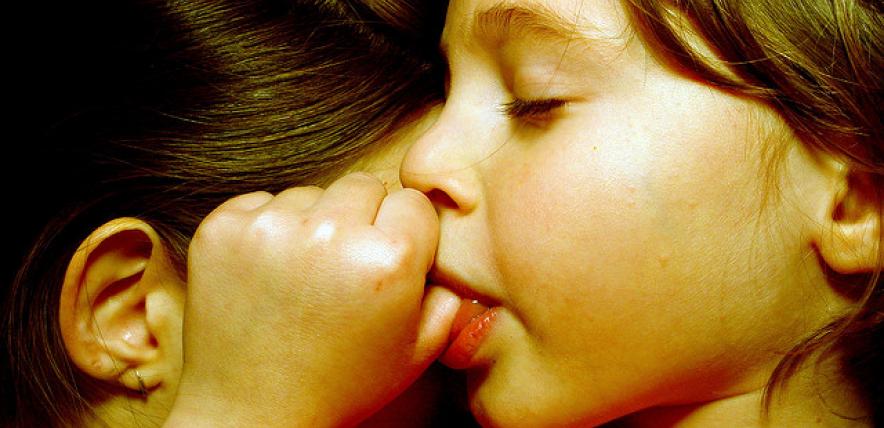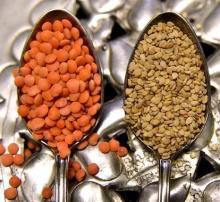Babies love sucking their thumbs because it is soothing and calming, and it is possible your child is now continuing something they started doing in the womb.
Whether it is on a thumb or a dummy, sucking is a natural urge in babies and young children and they do this when they are hungry, tired, bored or tearful and in need of comfort, or sometimes even just out of habit.
But parents are right to worry about the long-term effects, and what looks quite sweet with a baby may appear less so on a child approaching school age.
Many children naturally grow out of it by the age of five, but others may need help to be weaned off their thumbs if they rely on it.
According to studies about 15% of five-year-olds and one in 20 children aged 11 still suck their thumbs. In extreme case it can be a lifelong habit. A survey in 2010 found that more than one in 10 adults in the UK admitted they still sucked their thumb or fingers occasionally!
But the older a child gets, the more likely they are not only to affect their speech and the healthy development of their teeth and jaw, but also to be teased by classmates.
Avoiding long-term problems of thumb-sucking
Professor Nairn Wilson, of the British Dental Association, says that milk teeth are generally unaffected by thumb-sucking but once adult teeth come through, there might be a problem with the bite, or how your child’s top and bottom teeth fit together.
"Regular thumb sucking can lead to a misalignment of the teeth, pushing the upper teeth forward whilst the lower teeth are pushed back," he says, adding that some children might need braces because of this. Thumb-sucking can also change the shape of the palate, or roof of the mouth.
Prof Wilson adds: “If you are concerned about excessive thumb sucking then you should visit your dentist who will be able to discuss possible treatment, which could possibly involve referral to a psychologist.”
Thumb-sucking can also cause speech problems. As with a dummy, a comforting thumb in the mouth can prevent a child from making certain sounds properly, or they may develop a lisp. Other health problems can include chapped skin around the thumb and nail infections.
Stopping the habit
Helping your child to stop thumb-sucking won’t necessarily be easy and you may find you need to try several strategies. Merely telling them to stop won’t work if they’re doing it through habit and are not even aware of their actions.
Experts believe the key to stopping thumb-sucking is to look out for when and why it occurs and to offer an alternative.
So the first step is to recognise why your child is thumb-sucking and in what situations.
Putting a plaster on the thumb as a deterrent might not be the best solution, for example, if your child is sucking for comfort and you might be taking away from them an action that makes them feel better.
But if they do it because they are worried or frustrated, try to help them through the problem by offering alternative comforts, such as a soft toy or a hug, and by helping them name any feelings they may be experiencing which can be overwhelming for little ones – such as anxiety on their first day at pre-school.
If it’s a habit while relaxing, for example, try giving them a toy to hold or a ball to squeeze instead. You could also gently remind them they are sucking their thumb but without telling them off or being critical. Don’t embarrass them in front of others, as this is likely to create feelings of humiliation and may simply result in the child hiding the behaviour when you are there.
Positive reinforcement, such as a trip to the park or stickers can help to endorse the messages you’re trying to get across, however, thumb-sucking is often habitual and it’s therefore likely your child doesn’t even realise they are doing it.
The main thing is not to make a huge issue out of it. Just as youngsters spit out a dummy, so the majority of children eventually grow out of sucking their thumbs.
Further reading:
Where next?
How can I stop my child wetting the bed?







